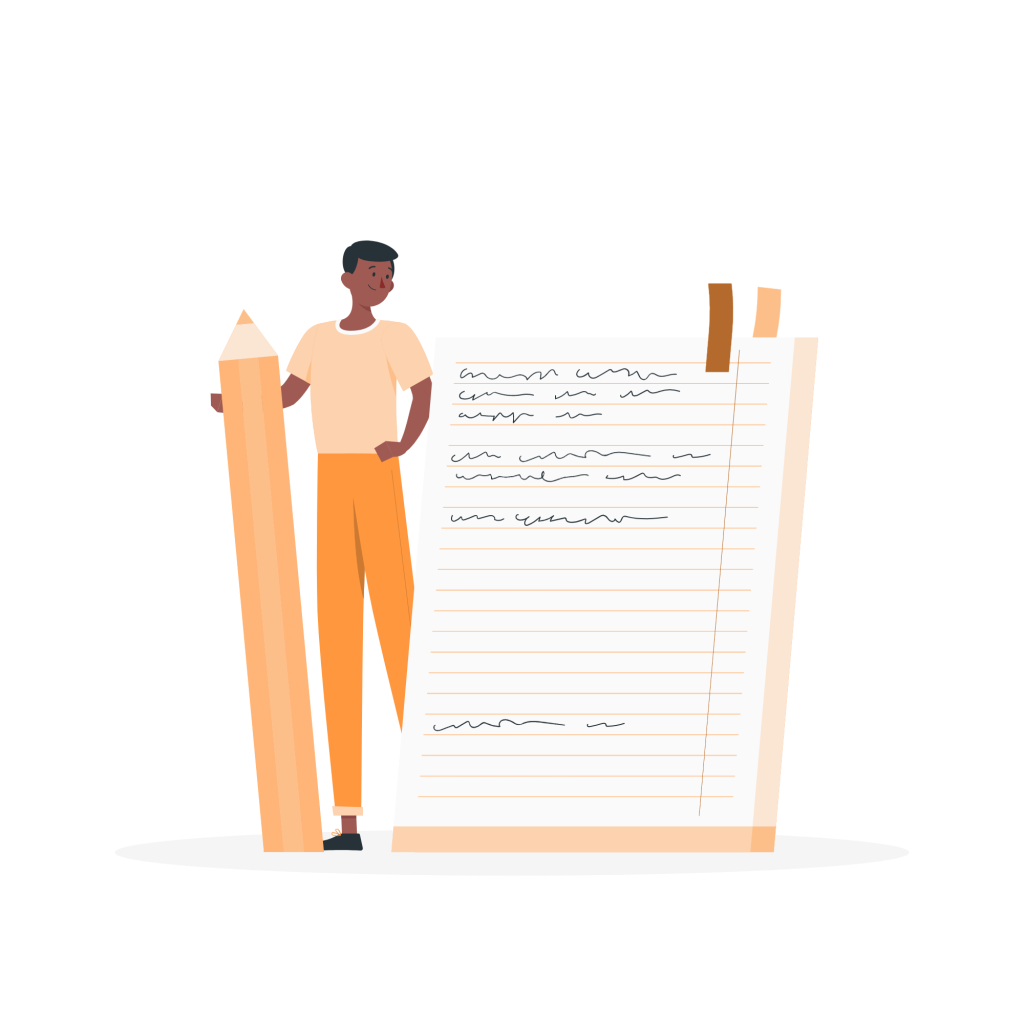Coaching is often mistaken for counselling or mentoring, when in reality it is neither. Then, what do you mean by coaching? Coaching is helping the client recognize and unlock their own potential to maximize their performance – whether personal or professional. A coach helps their client to self-discover their challenges and work towards solving them rather than provide ready-made answers. Coaching is more about helping an individual learn themselves rather than teaching anything specific. And in this journey, different tools for coaches are often used to lead the coachee to his/ her goals. Here’s a lowdown on the myriads of tools for coaching that life coaches arms themselves with.
What is Life Coaching?
Life coaches are trained individuals who take on the role of a trusted supporter – who guide and encourage their client through their journey of self-awareness, thus enabling them to get a clear & realistic view of their present situations, identify challenges, chart out an action plan and take accountability to implement those steps and achieve their specific (personal or professional) goals.
The life coaching process is a mutual partnership with the intent to encourage clients on the process of self-discovery, create a clear vision of where they are and where they want to go, utilise the expertise that the life coach brings to find resolution to transitions or specific issues that may have created a crossroad or standstill in personal relationships or career, pursue meaningful goals, improve communications etc., to foster a life that the client desires.
What are Life Coaching Tools?
Life coaching tools are exercises, workbook/ worksheets, questionnaires or forms that are used by the life coach (it could be in a one-on-one interaction, group coaching, via webinars, workshops, assignments) to help their client have clarity of their situation, encourage reflective thinking that will help them identify their challenges & try and work out a solution to overcome those obstacles, find out hidden talents, develop/learn newer capabilities, become more flexible & open-minded to inculcate changes that will make a discernible impact in their lives.
Tools for life coaching can include personality assessments, interviews & in-depth questionnaires put forth through stories or metaphors, coaching exercises, games & books, quizzes, templates, learning activities, and more.
Basically, tools for life coaches are a valuable addition to the coach-coachee dynamic that lets the coachee share information, reflect, learn, get inspired by, come up with novel ideas & make progress. Life coaching tools enables the coach to have extra ammunition in their coaching arsenal by customizing those tools to suit each client in their specific situations to accelerate their understanding & growth.
Who Can Use Life Coaching Tools?
As they help a coach gain valuable insight into the client’s mindset – their troubles, ambitions, inhibitions, hidden aptitudes and goals – life coaching tools are a powerful medium that are used not just used by life coaches but also by many mental health trainers including therapists, counsellors as well as human resource executives, student counsellors, career counsellors, financial advisors, corporate consultants, and more.
Importance of Using Life Coaching Tools
Life coaching tools empower the coach to make a real difference in their client’s life, helping them realise their true capabilities, tackle potential and real obstacles, identify barriers that hinder their progress, find answers to their problems to attain certain objectives. In short life coaching tools enhance the experience for the clients helping them get desired results more quickly.
When to Use Life Coaching Tools?
Just as carpenter uses different tools in his toolkit depending on the one that is appropriate for the furniture item being made, similarly a life coach will use different coaching tools at appropriate times and situations that suit their client the best.
So, by including life coaching tools (such as question forms, worksheets, templates, exercises, quizzes) right from the introduction session, in between sessions as homework assignments, during webinars or workshops to the last wrap-up engagement with the client, the coach can utilize specific tools to encourage the client to make steady progress towards their desired goals.
Top Life Coaching Tools
As stated above, life coaching tools are designed to make a positive difference in the client’s life, So, let’s take a look at some of the top life coaching tools that are not only user friendly, simple & easy but highly effective:
a. Insightful questions sheet
One of the most important life coaching tools to get started, question sheets (such as thoughtful questions sheet, career options sheet, behavioural assessment sheet, etc.) help the client explore themselves and their situation (both personal & professional) in depth. For the life coach, this tool provides valuable information about the client – their mindset, behaviours, attitudes, ambitions – and helps to chart a way on how to move forward.

Perfect the art of asking questions
Get your hands on ‘The Ultimate Guide to Asking Powerful Coaching Questions’
b. Journaling prompts
Journaling prompts or self-reflection/self-discovery exercise lets the client tap into their inner most feelings, their hurts, their likes & dislikes, strengths & weaknesses, goals and obstacles and helps them sort out the most important aspects in their lives. Exercises such as ‘Describe your daily routine?’, ‘The rocking chair exercise’, ‘What advice would you give your 16-year-old self?’ etc. let the client think rationally about the past, visualise their future, and zero in on core values and what matters most.
These prompts or inquiries help with decision making, self-motivation and realistic goal setting and can inspire the client to work towards their stated objectives.
Want to try a tool that can help your client with self-reflection?
Click here.
c. Learning process life coach worksheets
A great coaching exercise that includes a series of questions that helps gain insights about specific areas of the client’s life and then, based on those answers, leads them to take action steps is the learning process worksheet. Life coaching exercises such as ‘Daily successful habits’, ‘Personal value finder’, ‘Delegation exercise’, ‘SMART goal setting questionnaire’ etc. are some examples where a series of successive questions gradually build the learning procedure that leads to taking specific steps to improve that area of their life. Life coaching worksheets like “Action Brainstorming Worksheet” help clients identify behavioral traits that aid them (or not) in attaining their goals. You can download this life coaching worksheet pdf from the Coaching Tools Company for free.
Pro tip: If you don’t know where to start from when it comes to life coaching tools and exercises, get a copy of “50 Life Coaching Exercises – David Bonham-Carter”.
d. List-making exercises
One of the more effective life coaching tools, the list-making worksheet encourages the client to make lists of what they like, what they don’t like, what’s important to them and what’s not. A written list lets the client have better understanding of where they are wasting their time or draining resources, who is truly supporting them, who is not adding value to their life, and more. The client can divert energy, time and effort towards more positive people and productive endeavours and cut out negativity by taking the help of a list-making exercise.
d. Visualizing exercises
Visualizing is a powerful tool that lets clients understand (and clarify) the various aspects of their life – present as well as future. Wheel of life and Life Map are a couple of examples of visual exercises that help the client gauge certain patterns in their life, encourage them to think of novel ideas to improve areas that need attention and generally gain a fresher, creative, and sensible outlook on their life journey.
e. Re-evaluation tools
Most people get very set and comfortable in their operations and outlook. This can also include some unpalatable and limiting habits, behaviours and beliefs that can hinder their own progress. The re-evaluation question sheets are a great way to shake and wake clients out of their typical thought processes & non-useful habits and help them think of ways to turn a problem into an opportunity, their weaknesses into strengths, and more.
Basically, these re-evaluation exercises are a way of making the client realise that even discomfort can have its own learning benefits and that getting out of your comfort zone can be the first step towards personal development.
f. Transformational tools (metaphor or story)
Individual stories or metaphors are great learning tools that can have a life changing impact on the client. Stuck in a career situation, struggling with a difficult relationship, coping with health issues etc., are some life challenges that can be handled through step-by-step coaching exercises where the client can write down their wishes, actions that they have already taken, and important things that they can do to try and achieve those dreams.
Letting go of negative thoughts and actions that only hold you back, getting priorities in order (through Big Rocks, Little Rocks exercise) are some exercises that help the client see their problems in a newer perspective, reassure them that what they are experiencing is not unique and that a lot of their peers might be going through the same, and help them put what’s truly important in their life at the top of their priority list.
g. Efficiency & time management coaching tools
A lot of our time is spent doing unimportant, non-productive things that don’t deliver any value to our growth. The efficiency and time management worksheet and exercises help clients separate the wheat from the chaff, in that it makes them cut out activities that are not useful, are a waste of time and are not in their control. Instead, they can utilize that period to focus on more productive, important and urgent things such as SMART goals and tasks that will give better ROI on their invested time and energy. Spheres of Influence, Action priority Matrix, etc are some exercises that are truly helpful in getting clients to do more with their time.
h. Coaching quizzes & activities
Coaching quizzes are a smart way to gauge where the client is in their life. Such tools are handy to help clients raise their self-awareness, rate how satisfied they are in various aspects of their lives (personal, career, health, etc.) and how life coaching can make a difference in their lives, where their motivation levels are, how much willingness they have to work on their challenges to achieve their goals, and more.
Fun but effective coaching activities that involve the client to physically take part in the exercise, these exercises are quite useful as ice breakers – connecting people and urging them to identify things they are grateful for in their lives. Coaching activities are generally used for group life coaching or workshops and are mainly aimed at encouraging communication, connection and bonding within the group.

Check out our repository of online coaching tools
We have different coaching tools for different stages of the coaching engagement which you can test and customise as per your coaching methodology!
To sum up, life coaching tools give that added boost to the coach to successfully further a coaching engagement. These tools also help infuse new energy into a well-established program.
For the client life coaching tools such as forms, questionnaires, customized templates, coaching activities, quizzes, other informative life coaching materials etc., help them take stock of their present realities, promote new learning, open their thought process, pave way for exploring different solutions to challenges, encourage them to actively pursue a healthier work-life balance to achieve their dreams, and more.
Life coaching tools, thus, benefit both the coach and the coachee to have a mutually trustworthy, collaborative and successful professional relationship.
FAQs
1. What tools do life coaches use?
The main objective of a life coach is to help their client on their journey of self-discovery, understand their current situations, help them gauge which areas of their life work and which ones don’t, identify resources that are available to them to overcome challenges, create a solid plan and then take concrete steps to implement those actions.
To facilitate a smooth and effective execution of the coaching process and to help clients achieve their final goals, coaches use life coaching tools such as insightful question forms, journal prompts, time management tools, SMART goal setting, visualization exercises, list making tool, metaphors & stories tools, sequencing questions exercises, quizzes, customized personality assessments, and more.
2. What strategies do life coaches use?
Life coaching is a two-way partnership between the coach and the coachee, so to deliver transformational outcomes it is essential that the life coach and the client are on the same page right from the start. To foster a secure, comfortable, trusting environment where the client feels at ease revealing personal and professional insights about themselves, coaches need to be active, open-minded, non-judgmental and non-interruptive listeners.
Some of the other effective life coaching strategies include building trust between the coach and coachee, helping the client with realistic and meaningful goal setting, encouraging the client to take accountability for their own progress, motivating them to stick to the decided upon steps for attaining objectives, giving frank but honest, constructive feedback and more.
3. What is the use of life coaching tools?
Life coaching tools are used by the life coaches to help their clients comprehend their true value and capabilities, Identify and deal with real-life obstacles, make steady progress, and accelerates the goal-achieving process. All these lead to an enhanced client experience.
4. How to use life coaching tools?
A coach can including life coaching tools (such as question forms, worksheets, templates, exercises, quizzes) right from the introduction session, in between sessions as homework assignments, during webinars or workshops to the last wrap-up engagement with the client, the coach can utilize specific tools to encourage the client to make steady progress towards their desired goals.
About Simply.Coach
Simply.Coach is an enterprise-grade coaching software designed to be used by individual coaches and coaching businesses. Trusted by ICF-accredited and EMCC-credentialed coaches worldwide, Simply.Coach is on a mission to elevate the experience and process of coaching with technology-led tools and solutions.

Writer
An avid reader with love for books on history, sci-fi and popular fiction, Pallavi is a gifted content writer. She is also a keen listener of Indian semi & classical music. Currently, she juggles her duties of being a full-time mom with part-time content writing.









